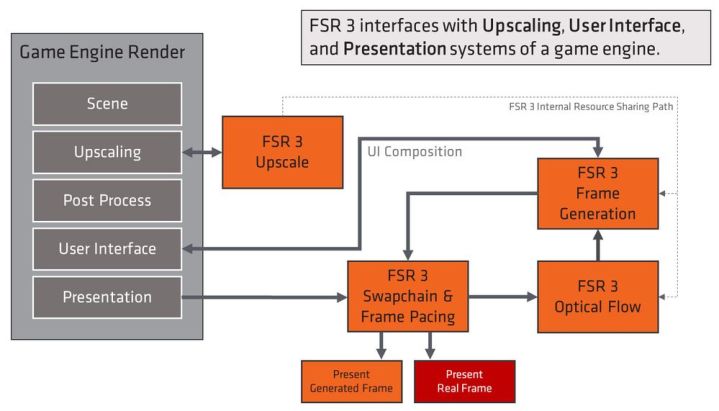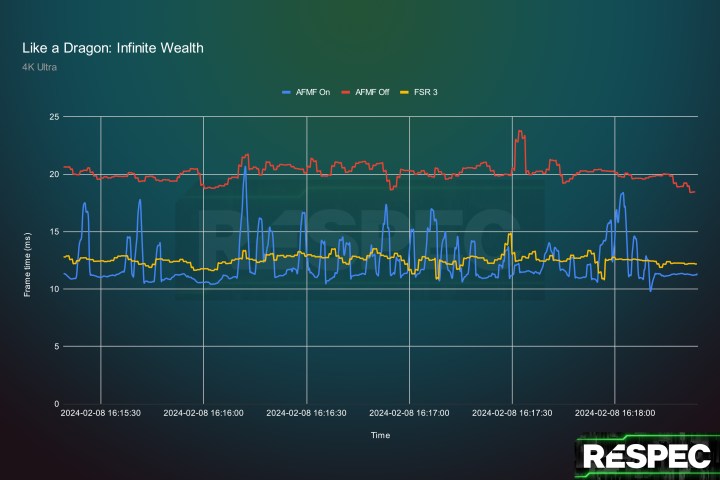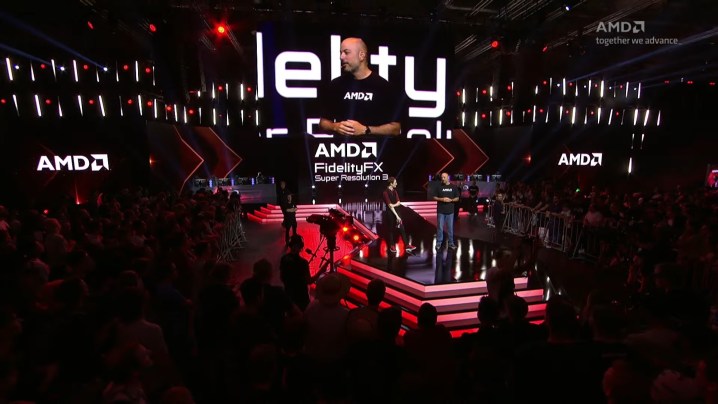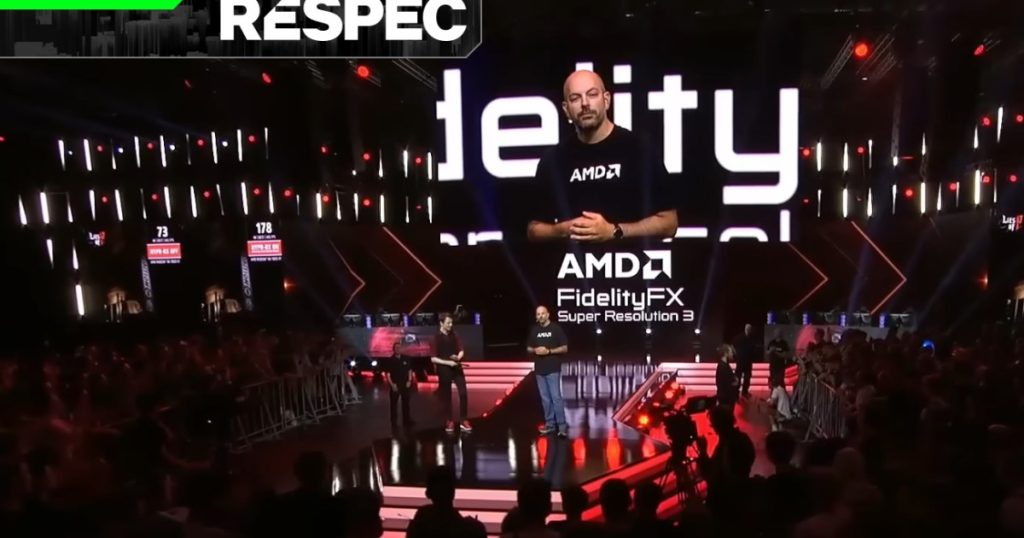AMD reached a compromise with FSR 3, the frame-generation technology that was announced in November 2022 but only recently became available in a limited number of games. The compromise, AMD Fluid Motion Frames (AFMF), is driver-based frame generation for DirectX 11 and DirectX 12 games, offering an alternative for AMD users. However, the quality of AFMF does not match up to FSR 3.
AFMF is not FSR 3

While AFMF and FSR 3 perform frame generation in similar ways, FSR 3 integrates with the game engine, allowing for better access to details like motion vectors. In contrast, AFMF can only apply frame interpolation after the rendering is completed, resulting in some noticeable artifacts. Additionally, AFMF has issues with maintaining smooth gameplay, particularly during fast motion sequences.
AFMF had a somewhat jittery response during most gameplay.
During testing in multiple games, it was found that AFMF failed to provide a consistent, smooth experience compared to playing the games natively without the upscaling feature enabled. Variations in frame rates and noticeable artifacts made it difficult to justify the use of AFMF.

Through comprehensive frame time graphs, it became evident that AFMF did not provide consistent results and often led to a subpar gaming experience. This leads to the conclusion that proper FSR 3 support is the only way forward for AMD to meet the demands of gamers.
Proper FSR 3 support is the only way forward

While AFMF may have the potential to improve games lacking FSR 3 support, it is currently not a viable alternative due to its lack of consistent performance. AMD’s focus should be on enhancing FSR 3 support in more games to meet the needs of gamers.
AFMF needs some big improvements before it can live up to its promise.
As it stands now, FSR 3 is only available in a small number of titles, the majority of which have very low player counts. And in place of proper FSR 3 support is AFMF, which does very little in most games to improve the experience. If AMD can fix up AFMF, I’ll be the first to cheer them on. But as of now, it has a long way to go.
Editors’ Recommendations


